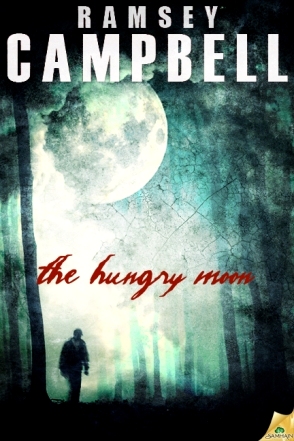
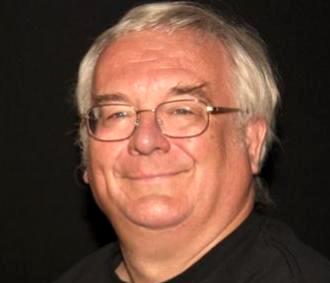
Get to know horror legend Ramsey Campbell! Ramsey discusses his early years and where he is today
...and gives tips to writers
IN THE "SPECIAL PAGE" ARCHIVES:
Mathew Cade
Bat$hit!crazy
Ellen Datlow
Brent Monahan
Owen King
Dacre Stoker
Piers Anthony
Ramsey Campbell talks to The Horror Zine
Q. Hi Ramsey. So good to have you with The Horror Zine in this issue. Let’s have our readers get to know you. I understand that you began writing at eleven years old, and at that time created a collection titled Ghostly Tales. Did you publish that one?
A. Well, I’d actually been writing for some years before that, but Ghostly Tales was my first serious – however youthful – attempt to write an entire book. The stories in it were patched together like Frankenstein’s monster from fragments of fiction I’d read. Let me quote a single representative sentence: “The door banged open, and the afore-mentioned skeleton rushed in.” My mother encouraged me to submit it to publishers – well, a mother would. Sometimes it ended up with children’s book editors, one of whom told me it made her feel quite spooky sitting at her desk. (Childish the book may have been, but it wouldn’t be for children even now.) By far the most positive response came from Tom Boardman Jr in August 1958. While Boardman was one of the few British houses to publish science fiction in hardcover, they didn’t take ghost stories, but he concluded: “We should like to take this opportunity of encouraging you to continue with your writing because you have definite talent and very good imaginative qualities. It means a lot of hard work to become an author but with the promising start you have made there is every possibility that you will make the grade.” It eventually appeared as issue 50 of Bob Price’s Crypt of Cthulhu. I can only hope the long-suffering subscribers weren’t too appalled by what Bob and I gave them.
Q. As a teenager, you met August Derleth, also known as the keeper of H.P. Lovecraft’s Cthulhu Mythos. How did that come about?
A. No, I never met him, alas. I got in touch with him when I was fourteen to ask his opinion of my Lovecraftian tales, and he gave me a good deal of very useful editorial advice and eventually published nearly all the stories. We corresponded for a decade, first professionally and then as friends as well. PS Publishing in Britain will be bringing out a volume of all our surviving correspondence, edited by S. T. Joshi and with an embarrassed introduction by me. I did eventually visit Arkham House in 1975, but by that time he’d been gone for years.
Q. You seem to write a subtle, anxiety-filled, psychological horror that slowly creeps up and then grabs the reader with terror. I believe your success is the uniqueness of your work: a crossover between horror and weird. How did you develop your style?
A. Its roots are in the classics of the field, which I began reading when I was unnervingly young. M. R. James is there, and obviously Lovecraft – his sense of structure and commitment to psychological realism, and his care with language, an aspect of his work far too often misrepresented and misunderstood. Blackwood is there too, and Machen. But what you might call my post-Lovecraftian fiction – most of what I wrote beyond my first Arkham House book, though some of it subsumes Lovecraft, of course – draws at least as much on favourite mainstream authors, especially those I encountered in my teens, when I was finding my own voice. Graham Greene was certainly an influence, and Nabokov – not just Lolita, though that was my introduction to his work – was a revelation: his joy in language, his discovery of comedy in the unlikeliest places, his use of words to make you look afresh. I wouldn’t be without any of these examples; I certainly wouldn’t be the writer I am.
Q. Do you show your family your work before you send it to the publisher? Is your wife Jenny also your editor and critic?
A. Our daughter and son read it when it’s published – they moved away long ago. Jenny reads the work in progress, usually each chapter of a novel in first draft. She’s among the very few who can read my handwriting, I suspect. I ought also to tell you that she kept us for five years when I set out as a fulltime writer. Quite a lot of my work is based on her experience – any stuff about teaching is likely to come from her decades in the job, and the Fancy family in The One Safe Place were all too typical of the kinds of clans she encountered. She acts as continuity editor sometimes, and sometimes suggests what might come next or soon, not to mention giving me an early sense of how readers may react to or interpret what I’ve written. But just by being with me and reading my stuff she’s enormously supportive – I know too many writers whose partners never want to read what they write and who wish they would.
Q. You have written at least thirty-five novels and have been included in numerous collections and anthologies. In addition, you have even written in the non-fiction genres. This is a question that most writers hate, but I feel The Horror Zine readers want to know: from where do you get your ideas?
A. Anywhere and everywhere. I’ve far more ideas than I imagine I’ll ever develop as tales. Quite often an everyday event or even a mundane object will suddenly reveal its potential, presumably because I’ve looked at it in a different (most often unplanned) way. It’s worth mentioning that ideas can be the easy part – it’s developing them that’s the hard work. My old friend Bob Shaw had the theory that ideas were often in the ether, since writers and other creators of fiction often seem to home in on the same one more or less simultaneously. I saw this borne out recently when Sarah Pinborough, Graham Joyce and I all wrote books about the fairies without knowing that the others planned to, and at the same time Steve Jones edited an anthology built around fairy tales retold.
Q. Of all those books, I have read many, but my favorite is still 1986’s The Hungry Moon, about Godwin Mann and the town of Moonwell. Do you have a personal favorite among your many works?
A. Happy you liked The Hungry Moon! I must admit I think it’s a failed attempt to do the kind of multiple-character small town novel Steve King does so well. Favourites of mine – well, I am rather fond of The Grin of the Dark, where it seems to me that the supernatural meets modern technology and comedy of paranoia. I used to like Needing Ghosts, but I’m leery of looking at it now in case it no longer shapes up (that is, never really did).
Q. You recently stepped down from being President of the British Fantasy Society. How long were you President? What was your role in that and how did you find the time?
A. Most of three decades. I was a figurehead, if an increasingly mossy one. I’m afraid I found the time by not doing very much.
Q. Do you keep track of all the awards you have won over the years? Which awards are closest to your heart?
A. All of them – they mean someone thought my stuff is better than I do, and after all, it’s the readers who should count.
Q. As everyone knows, the publishing experience has dramatically changed since you first entered the publishing world. How do long-time established writers adapt to ebooks and the electronic age?
A. I just carry on writing, much as I did when the bottom dropped out of horror. It won’t change how I write (which of course may mean I’m missing opportunities to play with form, but who knows – if I get a good idea along those lines I may try to develop it.)
Q. Most of The Horror Zine readers are writers themselves. Our readers would be very interested in any writing tips you could give them. Can you offer any advice?
A. I’m not the first to say that the most important thing for a writer to do is to write, but I’ll add that you should work on whatever you’re writing every day until it’s finished; to do otherwise is to court writer’s block, every blank day adding to the hurdle that prevents you from getting back into the story and making the task seem more impossible. An example of this is my story “Litter”, where six months elapsed between my first day’s work and my return to the story, which I took up by writing the line “That’s how he enters the story, or this is.” I should have rewritten the story to improve its shape, of course. Now I rewrite more and more severely, and take great pleasure in cutting thousands of words out of first drafts; I think that’s a pleasure worth learning as early as possible in one’s career, not least because realizing one can do it helps one relax into writing the first draft, where it’s better to have too much material for later shaping than not enough. Learning to relax enough with the technique of writing novels comes easier to some than others; you may feel you need to plot a novel in advance (maybe all the way to breaking it down into chapter synopses) before you begin the first chapter, but it’s worth trying to regard the synopsis merely as a safety net once you begin writing, trying to let the novel develop itself as it takes on more life. I did that first in Incarnate, and since then I’ve avoided plotting or constructing too far ahead, trying to know only as much as I need to know to start writing and head in the right direction. It can be fearsome to find yourself losing your way halfway through a novel, all by yourself in the unknown, but I find that the solutions are usually somewhere in what you’ve already written, and I can tell you that the bad days are worth the days when you feel the novel come to life.
I’m still stressing the arduousness, but let me see if I can pass on some tricks I’ve learned. We all have an optimum period of creativity each day, and it’s worth beginning work then if you possibly can. Mine is from about seven in the morning until noon or so. It’s easy to get distracted away from your work, but music may help; my desk is between the speakers of the hi-fi on which I play compact discs (which last longer than records and keep me there longer) of all sorts of music from Monteverdi onwards. (Steve King uses rock, Peter Straub jazz.) Don’t be too eager to feel you’ve exhausted your creative energy for the day, but if you sense you’re close to doing so, then don’t squeeze yourself dry: better to know what the next paragraph is going to be and start with that next time. Scribble down a rough version of it rather than risk forgetting it. Always have a rough idea of your first paragraph before you sit down to write, and then you won’t be trapped into fearing the blank page. If you must take a day or more out from a story, break off before the end of a scene or a chapter, to give yourself some impetus when you return. Always carry a notebook for ideas, glimpses, overheard dialogue, details of what you’re about to write, developments of work in progress. If an idea or something larger refuses to be developed, try altering the viewpoint or even the form: if it won’t grow as a short story, it may be a poem. Sometimes two apparently unproductive ideas may be cross-fertilized to give you a story. Then again, you may not be ready technically or emotionally to deal with an idea, and it can improve with waiting.
What else can I tell you? Only to write. Surprise us, astonish us. Enjoy your work. Above all, don’t despair. The frustration you will inevitably experience sometimes, the feeling that you don’t know how to write, may be the birth pangs of something genuinely new. I know I still suffer that experience every time I write a story. Believe me, it’s preferable to playing it safe with a formula.
Q. Is recruiting an agent still vital for a writing career, and if so, can you give our readers advice on how to retain one?
A. An agent is certainly useful. All you can do is approach some – research them first to make sure they deal with your kind of work and to discover what else they may require – and show them your best stuff. Good luck!
Q. Is there anything else you’d like The Horror Zine readers to know about a career in writing?
A. A warning that they may not need, but just in case they do (or indeed, it may help them feel they’re not alone in this experience). I’ve come to conclude that depression is essential to the creative process, at least in my case. I commonly waken in the morning with the sense that I’ve too few ideas for whatever I’m about to write, only to be enlivened once I get some. It seems that I may need to feel inadequate in order to discover that I’m not so far as the day’s work is concerned. I have the sense that the depression about my work actually generates its own cure in the form of inspiration, if I may use that term. In that case it’s crucial to what I do, and I can only embrace it. Perhaps if I were too conscious of the process each time before it happens it might desert me. I’ll live with it for the sake of the work.
About Ramsey Campbell
Ramsey Campbell has been given the title of Honorary Fellow of Liverpool John Moores University.
See the article by Roger Phillips about this honor HERE
Born in Liverpool, Ramsey has lived all of his life on Merseyside and as a writer, editor and critic, he has been a creative force for over 50 years. He is described as ‘Britain’s most respected living horror writer’ in The Oxford Companion to English Literature and best-selling author Stephen King has said he is: “literate in a field that has attracted many comic book intellects, cool in a field that tends toward panting melodrama…fluid in a field where many of the best practitioners fall prey to cant.”
A precocious intellect, Ramsey was reading at two and dabbling in writing by the age of seven. It was an apparently innocuous children’s tale which first peaked his interest in horror fiction. In a Guardian interview, Ramsey explained how a Rupert Bear story called Rupert’s Christmas Tree had an unexpected effect on him. He said: “Rupert acquires a magical tree that decamps after the festivities and returns to its home in the woods...the details – the small high voice from the tree, the creaking that Rupert hears in the night, the trail of earth he follows from the tub in his house, above all the prancing silhouette that inclines towards him, the star it has in place of a head – are surely the stuff of adult supernatural fiction. I think I got my start in the field right there.”
Two key people are credited with nurturing Ramsey’s early fascination with writing – his mother and his English tutor at St Edward’s College, West Derby. His teacher, Brother Kelly, regularly asked him to read his stories to the class and Ramsey’s mother Nora, who herself had short stories published in writer's magazines, encouraged him early on to send his work to publishers.
Aged only 11 Ramsey submitted his first collection Ghostly Tales to a range of publishers and although it was rejected, a letter which stated: “We don’t publish ghost stories, but this is a promising start,” encouraged him to keep writing, and Ramsey continued to avidly consume the work of Lovecraft, Bierce, Kafka and the cinema of film noir.
On leaving school at 16, Ramsey worked in the Inland Revenue but continued to write in his free time, selling several of his early stories to editor August Derleth, who went on to become a friend and mentor. At the suggestion of Derleth, Ramsey rewrote many of his earliest stories, moving their settings from Massachusetts to the fictional Brichester, imagined to be near the River Severn in Gloucestershire. This change of locales led to Campbell's first professional published work, the story, The Church in High Street in 1962 and the book, The Inhabitant of the Lake and Less Welcome Tenants in 1964.
Ramsey left the tax office to work in Liverpool public libraries, becoming a full time writer in 1973 after the publication of Demons by Daylight. His second hardcover collection of horror stories, The Height of the Scream, was published in 1976 as well as his first novel, The Doll Who Ate His Mother, which he now recalls had mixed reviews but has rarely been out of print since. Just three years later this was followed by The Face that Must Die, which is still considered by many critics to be one of Campbell's finest works.
From that point onwards Ramsey published numerous novels and short story collections, with hardly a year between publications. The majority of his work has been nominated for and has won major awards, leading to him becoming one of the world’s most decorated horror writers. He has won four World Fantasy Awards, ten British Fantasy Awards, three Bram Stoker Awards, and the Horror Writers’ Association’s Lifetime Achievement Award.
His passion for writing shows no sign of abating, with Ramsey continuing to write in a contemporary style with modern day references. He frequently sets his tales on Merseyside and has drawn on local history and traditions – a book of short stories and ten novels to date.
Ramsey comments that, contrary to what might be expected, the older he gets the more appealing he finds terror, saying: “Being made to feel by art is surely no bad thing – to be scared any more than to be made to weep or indeed to be amused out of one’s wits. It’s a way of engaging the imagination, and a good deal is right with that.”
See all of Ramsey's books HERE
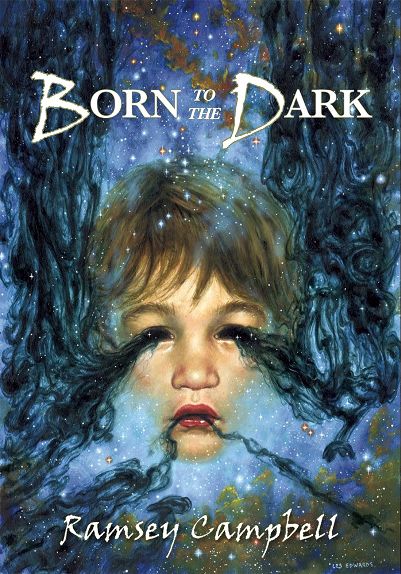
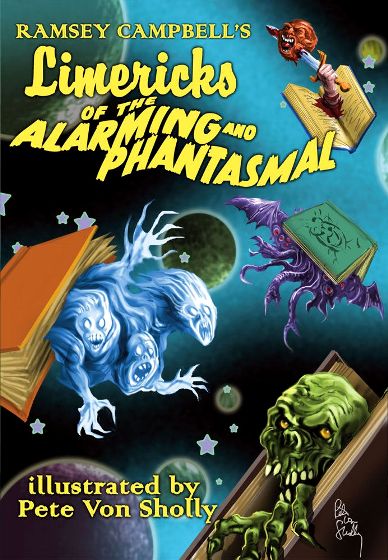
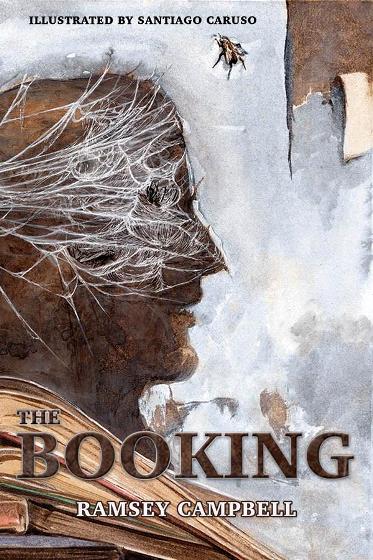
AND
